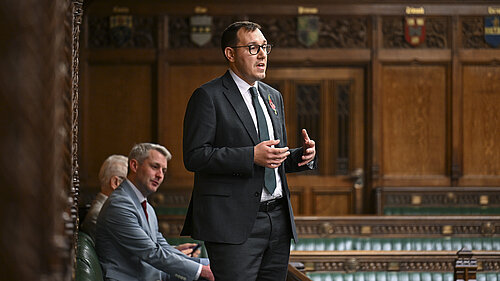Tom Gordon MP urges MPs to back 3-year implementation of assisted dying and “not consign terminally ill people to prolonged suffering”

In Parliament today, Tom Gordon championed the assisted dying bill and called for the implementation period to be reduced from 4 years to 3. The fours years that is currently suggested would be the longest commencement period of any country in the world. Other countries have taken just 6 months, 12 months and 18 months.
There are serious concerns that making the implementation period four years could lead to the bill becoming an election issue, with the next General Election due by July 2029. This could lead to assisted dying not even being implemented, even if MPs were to vote overwhelmingly in favour.
Tom called on his MP colleagues to “take best practice and learn from colleagues around the world”, and back his amendment to the bill.
Commenting, Tom said:
“I began as a strong supporter of this Bill — but what we’re left with is a heavily compromised version, tweaked to please everyone and now at risk of helping no one. Worse still, it may never come into force.
“Parliament voted for an assisted dying law in this Parliament, not to hand it off to an unknown future government or turn it into an election issue. To turn those who are terminally ill into a political issue would be unacceptable.
“This bill has the strongest safeguards of any in the world, but also – by up to 8 times – the longest implementation period. A four-year delay risks consigning terminally ill people to prolonged suffering under the current, broken system. They deserve so much better than the status quo.”
ENDS
